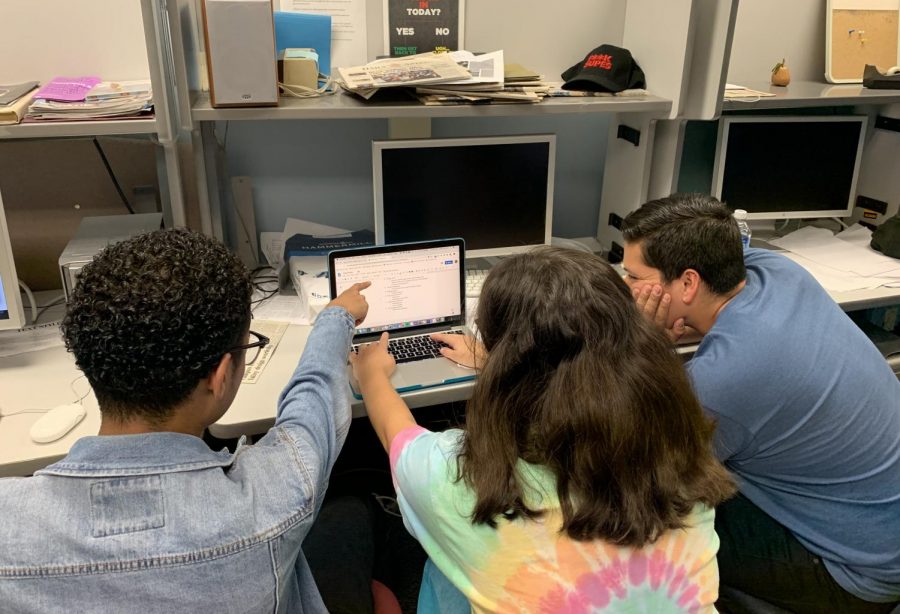With the semester nearing its end, group work tends to dominate the last couple of weeks. Time management as a student is already stressful enough with having to balance a full-time class schedule on an individual basis.
When combined with other factors like extracurricular activities, internships and jobs, the mix gets heavier. It is a major reason why dealing with group work outside of the classroom fuels frustration among students.
Group projects would be a different situation if students could focus solely on attending school and their coursework, and making the most of their time in that capacity.
Unfortunately, the fact is most college students need to work while attending college. This is the reality students face if they want to sustain a steady path to a secure financial future after graduation.
According to a study conducted by Georgetown University Center on Education and the Workforce, “Learning While Earning: The New Normal,” more than 60% of students work for pay, and of that percentage of students, 40% of them work 20 or more hours a week. The National Postsecondary Student Aid Study also found more than half of the students could not afford to go to college without working. Imagine having that high percentage of students in a college classroom trying to work around each other’s school and work schedules.
Sure, the internet has transformed how students can work remotely in groups, and that may decrease the pressure of meeting in person, but that doesn’t solve everything. It’s typically a frazzled mess that eventually gets done, but not without consequence.
Some students outside of the classroom can find themselves having to do the majority of the work. Or if everyone in the group is too busy, the result could be a mediocre quality of work reflected in a mediocre grade.
Professors can sometimes prevent that from affecting a student’s grade who was not at fault by providing everyone who worked in a group to an opportunity to give feedback about which person did what, then assigning grades accordingly.
Another usual method is making the group assignment fewer points than individual assignments. For professors, especially those of which teach large classes, group work may be the easiest way to get grading done for the entire class if they consolidate the work.
Although group work may be tedious, it should not be discounted altogether because there are many benefits, such as collaboration.
Working in groups can help people listen to ideas that they may not have thought of, think more creatively and solve complex problems as a team. Collaboration is also something that employers seek to encompass in their workplaces.
A Forbes article cited a joint study between the Institute for Corporate Productivity and Rob Cross, Edward A. Madden Professor of Global Business at Babson College that suggests the effectiveness of collaboration.
The study found that “companies that promoted collaborative working were five times as likely to be high performing.” The study also found that “Whilst many aspired to be collaborative however, a relative minority managed to achieve good results, with the authors suggesting that the key to productive collaboration is purpose.”
The “purpose” that the study elaborates on is an interesting one, primarily when it is related to college students. If the purpose of performing well in group work is associated with achieving a good grade on the assignment and in the class, then those group members will have a stronger focus.
However, if there are people in the group who are balancing other things like another class or work, they might likely be working towards a different purpose or priority. This may cause their participation to falter and affect the group’s overall performance. Disengagement in group work may apply beyond the college setting, but in an atmosphere where students are working or attempting to fulfill other social and economical duties, it may be a more likely result.
Group work outside the classroom can be reformed to serve its purpose of exercising learning objectives in classes, and equipping students with the collaborative quality of group work.
A solution to this would be to keep group work in the classroom. By doing so, there is a higher possibility of students being held accountable for their work, while alleviating the stress of having to find a place in everyone’s busy schedules that works best.
It would ultimately be a collaboration of compromise between students and professors. The professors still manage to grade less work, and students can have an opportunity at a lighter schedule. Now that’s collaboration.
Charlie Vargas is a senior studying journalism. Follow him on Twitter @CharlieVargas19.







